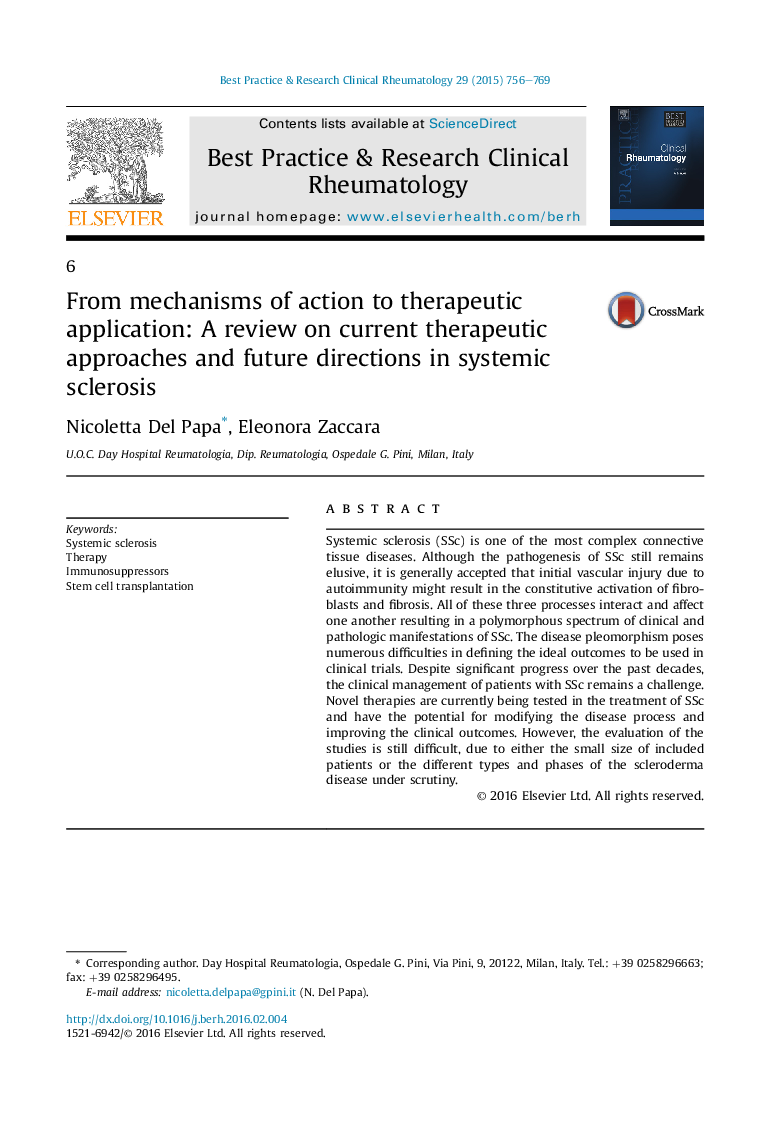| Article ID | Journal | Published Year | Pages | File Type |
|---|---|---|---|---|
| 3342815 | Best Practice & Research Clinical Rheumatology | 2015 | 14 Pages |
Systemic sclerosis (SSc) is one of the most complex connective tissue diseases. Although the pathogenesis of SSc still remains elusive, it is generally accepted that initial vascular injury due to autoimmunity might result in the constitutive activation of fibroblasts and fibrosis. All of these three processes interact and affect one another resulting in a polymorphous spectrum of clinical and pathologic manifestations of SSc. The disease pleomorphism poses numerous difficulties in defining the ideal outcomes to be used in clinical trials. Despite significant progress over the past decades, the clinical management of patients with SSc remains a challenge. Novel therapies are currently being tested in the treatment of SSc and have the potential for modifying the disease process and improving the clinical outcomes. However, the evaluation of the studies is still difficult, due to either the small size of included patients or the different types and phases of the scleroderma disease under scrutiny.
